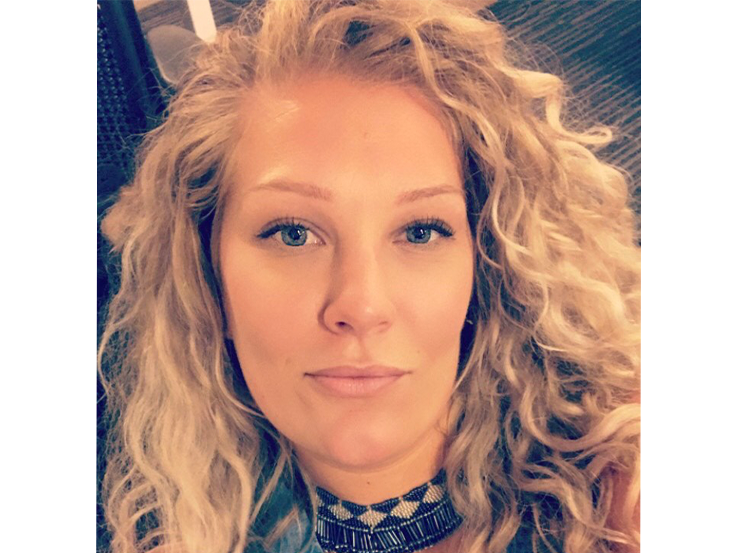Connecting the community through business and social innovation

Jessica Griffiths is a Student & Community Engagement Coordinator for the Office of the Dean at the Ted Rogers School of Management (TRSM) at Toronto Metropolitan University. In the Fall of 2019, Jessica started a placement project with the Office of Social Innovation (OSI) called “The Business of Social Innovation,” where she facilitated focus groups with Ted Rogers School student leaders to further explore how they defined social innovation.
We spoke with Jessica about her work as a community connector and facilitator at Toronto Metropolitan, as well as her experience in conducting the “Business of Social Innovation” project.
What does social innovation (SI) mean to you?
To me, SI is two-fold.The first part is exploring and apprenticing the wicked social problems that we see in society. The second part is the development and co-creation of transformative solutions to some of these complex and systemic social issues. The end goal is to strengthen society as a whole.
Can you tell us a bit about your role as a Student and Community Engagement Coordinator at Toronto Metropolitan?
As the Student and Community Engagement Coordinator at the Ted Rogers School my role is essentially to connect students, staff and faculty to the community, and vice-versa, through the facilitation of mutually-beneficial and reciprocal initiatives. I act as a community connector and facilitator, connecting various interest groups, with the aim of having a positive social impact within the local community and beyond. In this role, one of the initiatives and programs I work on includes the Microbiz Consulting Program (MCP), which is a small business consulting program operating in Regent Park. In MCP we connect pairs of upper-level business students from TRSM to provide consulting and business support services to locally-owned and operated microbusinesses and social enterprises within the community. We also have the Ted Rogers School Annual Thanksgiving Luncheon and Urban Garden.
What sparked your interest in pursuing social innovation and social justice initiatives in your work?
My interest in social justice and social innovation stems from my own personal challenges. In my 20’s I struggled with a debilitating addiction and mental illness, and I found myself needing the support of social services. This was an eye-opening and frightening experience for anyone who has never had to rely on such services before. I was blessed to have a good support network throughout my recovery, and I know I got a second chance at life that many others aren’t afforded. When I got well I knew I needed to pay it forward and use my privilege by advocating for those suffering with mental illness and addiction because the system is broken. It was my own personal trials and tribulations which led me to social services and seeing how broken things really were.
What led you to pursue your Masters of Leadership and Community Engagement (MLCE)?
I went through a lot of these personal challenges as an undergraduate student at TRSM, so it was really important for me to be able to build that experience into the work I’m doing. I really wanted to couple my passion with knowledge grounded in social justice, so I could be intentional, thoughtful and impactful in my role as Student and Community Engagement Coordinator. In searching for a program, the MLCE stood out to me because it has a placement component and it's a graduate program. The work in the program is also really grounded in anti-oppressive principles and social justice, which is exactly the framework that I wanted to expand upon for my own professional work.
"To me, OSI is the hub of social innovation at Toronto Metropolitan, and I was excited to be involved with such a dynamic space."
How did you start working with the Office of Social Innovation (OSI)? What led you to do your placement at OSI?
As part of my graduate program, we were required to complete a placement component, and OSI was at the top of my list. I wanted to engage with the unique offerings OSI has, and felt it would really enhance my current knowledge and experiences. To me, OSI is the hub of SI at Toronto Metropolitan, and I was excited to be involved with such a dynamic space.
Can you tell us about the project you worked on during your placement? Why was exploring SI within TRSM important to you and your work?
The project I worked on for my placement was called “The Business of Social Innovation”, and it involved conducting focus groups with Ted Rogers School undergraduate student leaders to better understand what they consider to be SI, what kind initiatives they’re interested in, and then use the information gained to inform future OSI programming and offerings. This was an exciting project as it was insightful to see how our student leaders defined SI, and it presented an opportunity to further implement and expand socially innovative practices into the culture of the Ted Rogers School.
Can you share any learnings or takeaways from your placement with OSI?
My biggest takeaway from my time working with OSI is to be open to unconventional collaborations and partnerships, sometimes they yield some of the most interesting and impactful projects.
What advice would you give to a Toronto Metropolitan community member looking to get started in working in SI?
My advice would be to get connected with the OSI via their mailing list in order to see what is happening. I think that Toronto Metropolitan has so much to offer in the way of social innovation, but I would definitely start with checking out OSI.
What’s next for you and your work?
I’m aiming to graduate from the MLCE program (late 2020) and I plan to continue on this journey of growth, learning and relearning to better serve the people and communities that I work with.